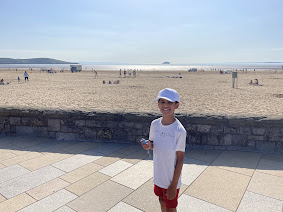Marine Life and Plastic Pollution
Every year 8 million tonnes of plastic ends up in our planet’s beautiful blue oceans. That is bad news for our friends beneath the waves.
 Image Credit: Ocean Conservancy
Image Credit: Ocean Conservancy
Watch this short documentary film on plastic in our oceans. Just to warn you there are some images that you may find shocking.
Link: Plastic Disaster - An Ocean Pollution Documentary - YouTube
Click the link for more information:
Great Pacific garbage patch - Wikipedia
Over 700 species of marine animals have been reported to have eaten or been entangled in plastic. Scientists think that the amount of plastic in the ocean may triple by 2050.
The problem is that most of us use more plastic than we need. Half of the plastic we produce is designed to be used just once and thrown away. This ‘single-use' plastic used to make all kinds of items, such as shopping bags, straws, food wrappers and packaging. Plastic takes over 400 years to decompose (break down), it stays in the natural world, causing damage, for a very long time.
Click the link for more information: What Is PLASTIC POLLUTION? | What Causes Plastic Pollution? | The Dr Binocs Show | Peekaboo Kidz - YouTube
Scientists think that 8.8 million tonnes of plastic end up in the ocean every year. That’s the same as stacking five plastic shopping bags of rubbish on top of each other on every metre of coastline in the world! But how does it all get there?
 Image credit: Ocean Conservancy
Image credit: Ocean Conservancy
When plastic breaks down in the ocean, it doesn’t break down completely. It just gets smaller, ends up being swallowed by fish, other marine animals and birds. The tiny particles of plastic absorb toxic industrial chemicals which, when eaten by fish, are absorbed into their tissues and are eventually eaten by humans.
By understanding the issue and taking action you can help change the future. You can make our oceans a clean, safe place for our wonderful wildlife.
Surfers Against Sewage have introduced the Million Mile Clean. This is a campaign which connects beach cleaning action throughout the year.
You can either take part in an organised beach clean or a mini beach clean with your friends and family. You can easily do this by picking up a few pieces of rubbish or clearing a small patch of the beach.
The beauty of the #MiniBeachClean is that it’s up to you how you do it. Our actions make a big difference!
Click the link for more information: Home - Beach Cleans
On a recent trip to Weston Super-Mare me and my family took part in a mini beach clean. We made sure we picked up any rubbish we saw on the beach as well as after enjoying our day at the beach we took our rubbish home to dispose of it appropriately. If everyone around the world did this the beaches would be clean for us all to enjoy to go swimming and build sand castles on the beach.
Every September thousands of people take to the beach all over the UK to take part in the Great British Beach Clean.
Click the link for more information: The Great British Beach Clean | Marine Conservation Society (mcsuk.org)
The Great British Beach Clean is a week-long event, where hundreds of beach cleans take place up and down the UK. Litter data collected drives the conservation work and also feeds into the International Coastal Clean-up (ICC).
- including the introduction of the plastic bag charge
- banning microplastics in personal care products
- better wet wipe labelling
- supporting a tax on single-use plastic items.
This year's Great British Beach Clean will take place between Friday 17th - Sunday 26th September 2021. Why don't you join in and make a difference!
Image Credit: Bally Dulay










